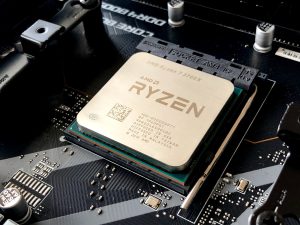
Updated April 21, 2024
Inductive vs Deductive Analysis: Unveiling the Contrasts
In the era of big data and information overload, mastering the art of reasoning is more critical than ever. Inductive and deductive reasoning are the twin pillars of logical analysis, each offering a unique pathway to understanding the world around us. Inductive reasoning, in particular, demands the rigorous evaluation of evidence before forming conclusions, pushing back against the acceptance of unverified data.
In this landscape of abundant information, the uncritical acceptance of data is a pitfall that can lead to erroneous conclusions. It’s a fact that data can be manipulated, as evidenced by instances where even government statistics have been called into question. An objective and discerning approach when analyzing information is not just advisable; it’s imperative for accurate research and analysis.
Embracing inductive reasoning transforms our approach to data, challenging us to rise above mere assumption and conjecture. This methodical scrutiny leads to more refined and actionable insights. It demands that we seek patterns and trends from specific observations to reach general conclusions, ensuring our analyses are grounded in empirical evidence.
Moreover, inductive thinking doesn’t exist in a vacuum. Deductive reasoning complements it by testing these general conclusions against specific instances, creating a robust framework for understanding and prediction. Together, these modes of thought fortify our analytical capabilities, enabling us to dissect complex information streams and synthesize them into coherent and reliable knowledge.
The wisdom of Montaigne reminds us that “nothing is so firmly believed as that which we least know,” underscoring the importance of questioning and verifying our sources of information. Similarly, Erasmus argued that “In the land of the blind, the one-eyed man is king,” highlighting the value of insight in a world overwhelmed by ignorance and misinformation. Reflecting on the journey of understanding,
Herman Hesse noted that “everything becomes a little different as soon as it is spoken out loud,” suggesting the transformative power of articulating and examining our thoughts. These perspectives from historical thinkers enrich our approach to reasoning, advocating for a blend of scepticism and openness as we navigate the complex seas of data and deduction.
Mastering Market Dynamics: The Confluence of Emotion, Reasoning, and Behavioral Insight
Understanding the interplay between market psychology, emotional influences, and cognitive biases is essential for making informed decisions in the complex investing world. This synthesis of inductive and deductive reasoning, when applied to the principles of mass psychology, offers a robust framework for navigating financial markets and personal growth.
The Role of Emotion and Cognitive Biases in Trading
Market psychology is profoundly influenced by emotions such as fear, greed, and hope. Fear can trigger panic selling, leading to market downturns, while greed may cause asset bubbles through overvaluation. On the other hand, hope often leads to unrealistic expectations, skewing rational investment decisions. Cognitive biases like confirmation bias and anchoring further complicate trading decisions by distorting rational thinking. These biases prompt traders to seek information that confirms pre-existing beliefs or to rely on initial pieces of information overly.
The Power of Inductive and Deductive Reasoning
Inductive reasoning allows traders to observe patterns and behaviours, forming broad generalizations that guide future predictions. This approach is crucial in understanding market movements’ underlying trends and motivations. Deductive reasoning applies general principles to specific cases, helping to structure the insights gained from inductive observations into actionable strategies.
Behavioural psychologists such as Daniel Kahneman and Amos Tversky have significantly contributed to our understanding of these processes. Kahneman’s work on heuristics and biases reveals how psychological factors can lead to deviations from rational decision-making, emphasizing the need for a disciplined approach to overcome these biases. Tversky’s research complements this by detailing the cognitive illusions that often mislead investors, highlighting the importance of critical thinking and scepticism in financial decision-making.
Strategies for Objective Decision-Making
To counteract the adverse effects of emotion and cognitive biases, traders should:
– Develop a Trading Plan: A clear, well-defined trading plan helps maintain discipline and focus, reducing the impact of emotional responses.
– Implement Risk Management: Effective risk management strategies, such as setting stop-loss orders, help mitigate potential losses and control emotional reactions to market fluctuations.
Stay Informed and Educated. Continuous education about market dynamics and investment strategies enhances one’s ability to make informed decisions.
Maintain Emotional Awareness: It is crucial to be conscious of one’s emotional state and its influence on decision-making. This self-awareness enables traders to make more rational choices.
Unlocking Mass Psychology: The Power of Inductive Thinking
If you seek to change, you must first want change. Change does not come without effort; effort is necessary because one has to deprogram one’s mind from old concepts that one was falsely led to believe. Sol Palha
At TI, we recognize the critical importance of mass psychology in financial markets. This field studies groups’ collective behaviours and mindsets, offering essential insights into decision-making processes and actions. Change and self-improvement begin with a desire for transformation, requiring a commitment to discard outdated beliefs and adopt new mindsets. This evolution is gradual, akin to a child’s progression from crawling to walking.
A focus on mass psychology equips individuals and investors with a deep understanding of market dynamics, enabling informed decisions that lead to sustained success. To initiate change, one must first possess the desire to evolve. This evolution demands effort and a willingness to free one’s mind from long-held misconceptions.
Leveraging inductive reasoning allows us to analyze market trends and investor behaviour more effectively. This approach allows us to accurately predict market movements, leading to more strategic investment decisions. Understanding the psychological underpinnings of market fluctuations is not just an academic exercise; it’s a practical tool for achieving financial objectives.
Inductive vs Deductive Analysis: Unlocking The Mind’s Potential
At TI, we challenge conventional wisdom and the notion of expertise. Our approach is grounded in healthy scepticism, recognizing that our minds have been trained for years to accept information from mainstream media and perceived experts without question.
We do not view anyone, including ourselves, as an ultimate authority. Our focus is on constantly learning and growing. Furthermore, we respect those who approach their work with a humble and open mind, acknowledging that there is always more to learn and discover.
We believe the best way to approach any subject, including the financial markets, is by constantly seeking new information and challenging old assumptions with an open and curious mindset. By keeping an open mind and a willingness to learn, we can continue to grow and improve our understanding of the markets and the world around us.
Exploring the Power of Inductive Thinking
Your mind has been trained for decades to accept what mainstream media and so-called experts deemed to be true. Sol Palha
Inductive thinking is a critical skill in the arsenal of any strategic thinker, particularly in fields where understanding mass behaviour is vital to success. It’s a method that builds conclusions from the ground up, starting with specific observations and moving towards broader generalizations. This approach is not just about making educated guesses; it’s about establishing a foundation of probability that informs smarter, more strategic decisions.
In the financial markets, where investors’ collective behaviour often dictates price movement, inductive reasoning is indispensable. It allows analysts to identify market trends and investor behaviour patterns, leading to more accurate predictions and strategies. For example, by observing that certain stocks tend to rise after upbeat earnings reports, traders can inductively predict similar movements in the future and plan their trades accordingly.
Inductive reasoning also embraces the possibility of error, a powerful catalyst for growth and learning. It acknowledges that conclusions are provisional and subject to change with new evidence. This humility in the face of knowledge is not a weakness but a strategic advantage. It keeps minds open and alert to new data that can refine or overturn existing beliefs, ensuring that strategies remain robust and responsive to the latest market dynamics.
Idiots are forever clamouring for attention while the wise desperately seek to avoid it for they know their efforts are best directed towards seeking more knowledge rather than wasting time basking in the light of false glory. Sol Palha
The Interplay of Inductive and Deductive Reasoning: Navigating Complexity with Diverse Insights
Inductive reasoning builds conclusions from specific observations, while deductive reasoning tests existing theories. In the financial markets, inductive reasoning allows analysts to identify trends and patterns, leading to more accurate predictions and strategies.
However, the effectiveness of inductive reasoning depends on the quality and accuracy of the observations. Flawed or biased data can lead to incorrect conclusions, emphasizing the importance of rigorous data collection methodologies.
Inductive reasoning cannot provide absolute certainty, as it assumes future observations will align with past trends. This assumption is unprovable and can be disproved by a single contradictory observation.
Conversely, deductive reasoning can provide certainty if the premises are true and relevant. It is useful for understanding key drivers of a problem or solution.
The most compelling thinkers and decision-makers combine inductive and deductive reasoning, leveraging their complementary strengths. Inductive reasoning is often used to generate hypotheses, while deductive reasoning is used to test them.
Deductive reasoning is applied in various contexts in the workplace, such as strategic planning, risk assessment, and problem-solving. Employers value candidates who can think logically through problems and develop solutions.
Strengthening reasoning skills can help individuals impress employers throughout their job search and improve their work performance. By balancing creativity, rigour, and adaptability, we can harness the power of diverse insights to uncover patterns, generate new ideas, and make informed decisions in the face of uncertainty.
Conclusion
In conclusion, the interplay between inductive and deductive reasoning is crucial for comprehensively understanding complex phenomena, particularly in crowd psychology and financial markets. As Mark Twain astutely observed, “Whenever you find yourself on the side of the majority, it is time to pause and reflect.” This sentiment underscores the importance of questioning the conclusions drawn from inductive observations and subjecting them to the rigours of deductive logic.
A keen observer of human behaviour, Charlie Chaplin remarked, “We overthink and feel too little.” This insight highlights the need to balance the analytical power of deductive reasoning with the empathetic insights gained through inductive observations. By integrating these complementary approaches, we can better understand the forces that shape crowd behaviour and market dynamics.
Ultimately, the key to navigating the complexities of the modern world lies in recognizing the strengths and limitations of both inductive and deductive reasoning. By harnessing their combined power, we can uncover the hidden patterns that drive human behaviour, anticipate the challenges that lie ahead, and make more informed decisions in the face of uncertainty. As we strive to make sense of the ever-changing landscape of the financial markets and beyond, let us remember the words of these great thinkers and embrace the balance of reason and intuition in our quest for understanding.
Stimulating Articles That Encourage Reflection

Quantitative Easing: Igniting the Corruption of Corporate America

Uranium Market Outlook: Prospects for a Luminous Growth Trajectory

Stock Investing for Kids: Surefire Path to Success!

An Individual Who Removes the Risk of Losing Money in the Stock Market: A Strategic Approach

Palladium Forecast: Unveiling the Stealth Bull Market

I Keep Losing Money In The Stock Market: Confronting the Stupidity Within

Analyzing Trends: Stock Market Forecast for the Next 6 Months

AMD Stock Forecast 2024: How MACDs & RSI Signal a Bottom

Market Mastery: The Best Investing Books for Your Success

Example of Groupthink: Mass Panic Selling at Market Bottom

Contrarian Thinking: The Power of Challenging the Status Quo

Mastering Technical Analysis Of The Financial Markets

Contrarian Outlook: A Pathway to Breakthrough or Breakdown

Financial Freedom Book: A Pinch of Salt, a Splash of Whiskey

Unleashing the Power of Small Dogs Of the Dow
Why market crashes are buying opportunities
How to boost your immune system: Simple Ideas
Buy When There’s Blood in the Streets: Adapt or Die
References for Inductive vs Deductive Analysis
“Talks with the Devil” by Peter Ouspensky
“Any monkey can beat the market” by Forbes
“Mental Model: The Illusion of Choice” by JoshuaKennon.com
“Why Most Investors Lose Money — And How Not To Be One Of Them” by Nasdaq


